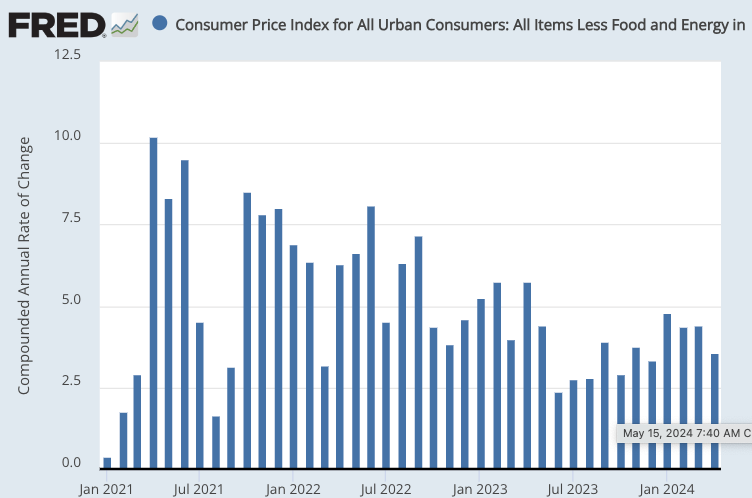What Factors Do We See That Might Upend America's Soft Macroeconomic Landing?
Hint: the big threatening factor is not that the Federal Reserve is likely to reduce interest rates too much too soon. It is, rather, the threat of a Trump-led Fed War next year…
Yes, Virginia, core-CPI inflation is lower than it was a year ago:
And there still remains the slowdown in shelter inflation we expect coming from (a) the role of precontracted rent renewals in providing inertia to shelter inflation, plus the lags between economic events and their reporting contained in the Owners’-Equivalent Rent measure.
And there is the substantial economic weakness outside the United States that is driving foreign central banks to want to cut rates as much as they can without deranging currency markets. Thus the claim that monetary policy in the U.S. is not restrictive—that r* has risen markedly over the past decade—does not seem to have (much) empirical support in the tracks of inflation from any perspective that does not overreact to month-to-month noise. Shelter and transportation—mostly insurance—appear to be the reasons why core-CPI inflation over the October-April half-year was not lower than inflation over the preceding April-October half-year. Yet those inflation components do not seem to have legs.
Thus I continue to see a world eighteen months from now in which the Federal Reserve is much more likely than not to wish that it had started cutting interest rates in January 2024.
Thus I continue to see the United States not just on the soft-landing path, but on the runway and slowing—in fact, in the middle of the groove—although with the monetary-policy rudder to the contractionary right, rather than the straight-ahead as I believe it should be.
So, then, what are the many who strongly think the Federal Reserve needs to keep interest rates at their current relatively high levels thinking?
The answer is that they think that history often rhymes, and they are reaching back into the past and remembering an earlier time, the years 1977-1979 to be specific, and viewing it as a cautionary tale. Back then a near-stabilized inflation spiraled out of control.

